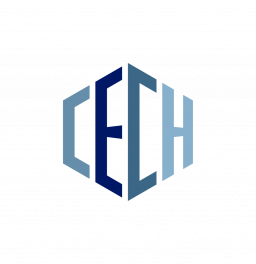Food Heritage and Tourism
Classes: 19.09.2022 - 22.10.2022
Scientific Domain: Tourism and Leisure
Professor responsible
Claudete Oliveira Moreira • University of Coimbra, Faculty of Arts and Humanities, CEGOT
Other Professors
Josefina Olívia Salvado • Researcher of CECH, University of Coimbra
Type of teaching: Misto/B-learning
Language(s) of instruction: Português
Objectives of the curricular unit and skills to be developed by the student
To understand the tourism system, its components and trends.
To distinguish the differentiating elements of regions and their landscapes in the construction of a cultural mapping, aiming to provide arguments that enhance tourism experiences.
To understand benchmarking in Tourism and Food Heritage, the concepts, objectives and applicability.
To develop benchmarking technical skills and provide operational tools to increase the competitiveness of businesses, products, brands and awareness of destinations.
To develop technical skills associated with the events to launch, to present or disseminate new products, experiences and destinations in the tourism market.
To understand the importance of organising events around the Food Heritage for the promotion of products, brands and destinations.
Syllabus
1.Tourism system, territory and experiences
1.1 Tourism system: new trends
1.2 Territory and tourism: regions, landscapes and communities
1.3 The economy of experience: gastronomic tourism and wine tourism
2. Benchmarking in tourism
2.1 Concepts, objectives and applicability
2.2 Formulation and implementation of the benchmarking strategy
2.3 Analysis of practical cases of benchmarking in tourism
3. Organisation and management of gastronomic and wine events
3.1 Life cycle of an event: operational concepts
3.2 Food heritage and events: typology, players and scales
3.3 Strategic perspective in tourism events planning: logistics, services and human resources management
3.4 Food heritage: seasonality, events and destination management
3.5 Practical application "Planning a gastronomic tourism or wine tourism event
Teaching methodologies and evaluation
The sessions will be theoretical and practical, with exposure, discussion and illustration of the programmatic content. The expositive method will serve only as a framework. An active participation of students will be promoted, which will be motivated to develop various skills and competences. Case studies will be promoted as well as multimedia content viewing and commenting, and individual and group exercises. It will be valued the study/technical visit, to promote reflexive and critical observation, as well as the contact with organisations (entities/companies/associations). Stakeholders will be invited in the context of the workshops. The applied work/fieldwork will enable students to approach the reality of the tourism activity, and their empowerment in tourism valorisation and management of food heritage. Theoretical review 30%, Applied work/fieldwork and presentation 40%, study visit report or invited stakeholder conference 30%.
Main bibliography
Beeton, S. & Morrison, A. (2019). The study of food, tourism, hospitality and events: 21st-century approaches. Springer.
Bellini, N., Clergeau, C., & Etcheverria, O. (2018). Gastronomy and local development: The quality of products, places and experiences. Routledge.
Bladen, C., Wilde, N., Kennell, J., & Abson, E. (2020). Events management. Routledge.
Caetano, J., Portugal, J., & Portugal, M. (2018). Gestão de eventos. Escolar Editora.
Cousins, J., Foskett, D., Graham, D., & Hollier, A. (2022). Food and beverage management for the hospitality, tourism and event industries. Goodfellow.
Hall, C. M., & Williams, A. M. (2008). Tourism and innovation. Routledge.
Ismagilova, G. et al. (2015). Using historical heritage as a factor in tourism development. Procedia, Social and Behavioral Sciences, 188, 157–162.
Morrison, A. M., Lehto, X. Y., & Day, J. G. (2018). The tourism system. Kendall Hunt.
Osterwalder, A., Pigneur, Y., Bernarda, G., & Smith, A. (2015). Criar propostas de valor. D. Quixote.

